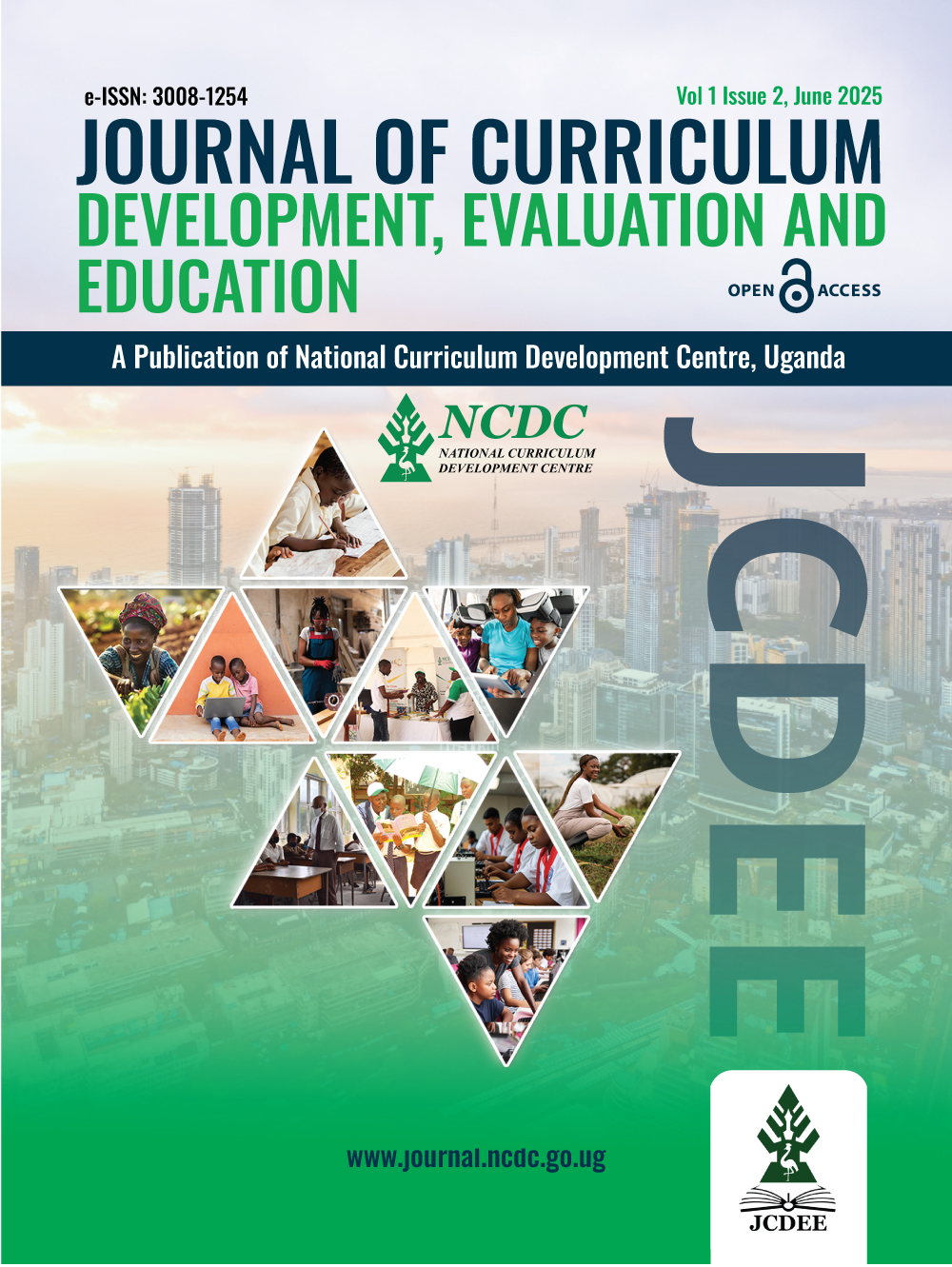Transforming Higher Education in Uganda: An Integrated Pedagogical and Assessment Strategy for Technology-Enhanced and Learner-Centered Learning
DOI:
https://doi.org/10.64948/JCDEE.v1.i2.2025.98Keywords:
Teaching, Learning, Lecture based Instruction, Student Centered learning, Technology based InstructionAbstract
This study evaluated the different ways of transforming higher education by developing strategies for equitable technology-enhanced and learner-centered learning. Despite increasing access to higher education, challenges related to teaching quality, outdated pedagogies, limited student engagement, and ineffective assessment practices persist. An explanatory sequential mixed methods design was employed. Quantitative data were gathered through structured questionnaires administered to 382 students from Makerere and Kyambogo Universities, selected using proportionate random sampling. Qualitative data were collected from 56 university staff and NCHE officials through interviews, using purposive sampling. Quantitative analysis revealed a statistically significant positive relationship between effective teaching methods and student learning outcomes. Respondents noted that the integration of portfolios, peer reviews, and project-based tasks deepens critical thinking and improves student motivation. However, institutional resistance, policy ambiguity, and inadequate lecturer training remain key impediments. The study concludes that without embedding flexible assessment practices and enforcing robust policy structures, higher education cannot meet 21st-century learning demands. Recommendations include policy revision to mandate formative assessments, capacity-building programs for academic staff, and stricter NCHE oversight mechanisms to ensure alignment between teaching, assessment, and student outcomes.


